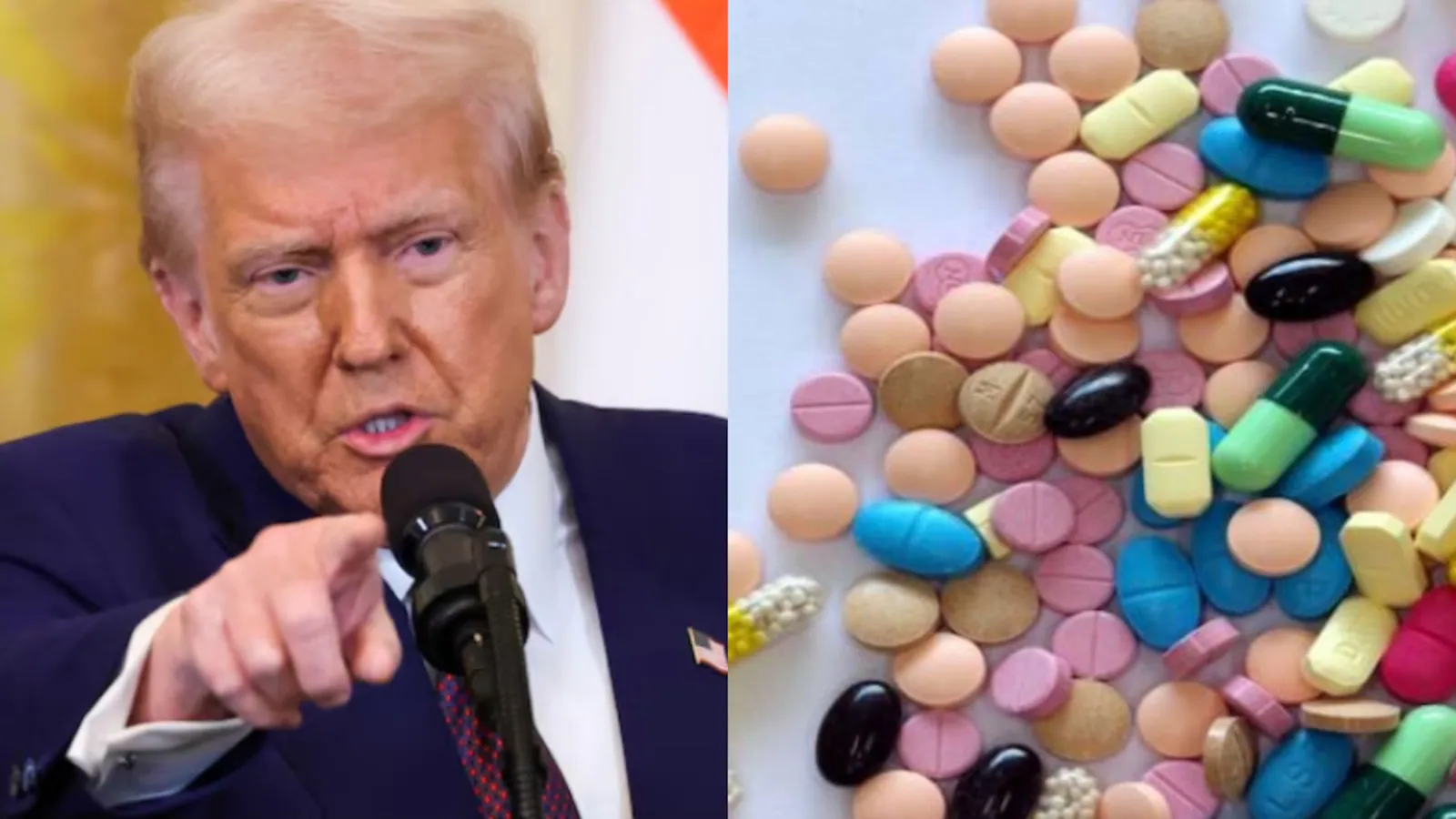08 Jul , 2025 By : Debdeep Gupta

The shares of Indian pharma companies dropped in trade on July 8 as US President Donald Trump reignited investor concerns after sending tariff letters to several countries. The sharp fall in the share prices pushed the Nifty Pharma index down nearly 1 percent to hover around 22,159 in the morning.
Trump on July 7 issued letters with new tariff rates to around 14 countries. The new import tariff rates will be applicable from August 1. Notably, the US President is expected to issue more such letters this month.
India meanwhile is negotiating a trade deal with US. The much anticipated mini-deal is yet to be announced, as certain trade subjects remain a source of contention between the two countries. Notably, the tariff letters and the expectations of more such letters in the future may have triggered worries over India receiving once before it can conclude its trade deal with the country.
Pharma companies derive a major portion of their revenue from US exports. Hence, Trump's elevated tariffs will likely hamper their margins. This may have impacted the pharma stocks today.
Aurobindo Pharma shares tumbled over 3 percent to trade at Rs 1,147 apiece in the morning, while Lupin shares dropped nearly 3 percent to trade at Rs 1,925 apiece. Dr Reddy's Laboratories and Zydus Lifesciences shares declined over 1.6 percent each, while Granules, Sun Pharma, Cipla and Torrent Pharma shares fell over 1 percent each.
Ajanta Pharma, Laurus Labs and Glenmark Pharma shares fell over 0.6 percent each, while those of Biocon and Alkem Labs were trading in the red with marginal losses.
Bucking the trend, Divi’s Labs, Mankind Pharma, Natco Pharma, IPCA Labs, Gland Pharma and Abbot India shares were trading in the green.
The pharma index has now extended losses for the second consecutive day, after a 10-session gaining rally. Notably, the fall in the share prices were fuelled by bearish notes issued by analysts. Macquarie downgraded Aurobindo Pharma and Dr Reddy's Labs to 'underperform' and 'neutral' respectively, according to a report by Zee Business.
"India needs to wait and watch and see what others have got, if you do a deal too soon, it could be an uneven one," a source aware of the developments told Source. Notably, Union Commerce Minister Piyush Goyal had said last week that India does not broker trade deals on deadlines.
"An FTA (free trade agreement) should be a win-win. India never negotiates trade deals based on deadlines. Our focus is always on fairness and the country’s benefit," Goyal told reporters on July 4.
Nomura noted that the Indian Pharma Market (IPM) grew 8 percent on-year in June, supported by an uptick in acute therapies. Notably this is the highest growth rate in the past five months. Normura said most of the pharma companies under its coverage grew ahead of the market. IPCA Labs and Sun Pharma grew 12 percent each, followed by 11 percent growth in Torrent, Dr Reddy’s Labs and Glenmark Pharma.
Some analysts however feel that Trump's tariff may in turn benefit Indian pharma companies. "Trump’s new round of tariffs — with rates as high as 40% and targeting a wide set of countries across Asia — has brought Indian pharmaceuticals back into strategic focus. While the India–US trade deal remains under negotiation, the pharma sector could find itself at an inflection point...The US is actively looking to reduce its reliance on Chinese pharmaceutical inputs, including contract development and manufacturing services (CDMO/CMO), where China holds an 8% import share. India, with its scale, compliance track record, and expanding API base under PLI incentives, stands well-positioned to absorb part of this shift," said Bhavik Joshi, Business Head, INVasset PMS.
"Still, the opportunity isn’t without caveats. A renewed push for 'Buy America' could complicate matters for low-margin generics, and any uptick in regulatory stringency may weigh on sentiment. Market participants should prepare for a scenario of selective outperformance — where Indian pharma players with diversified product profiles, strong compliance history, and CDMO capabilities could gain, even as others navigate familiar pressures from Trump-era policy déjà vu," he added.
0 Comment